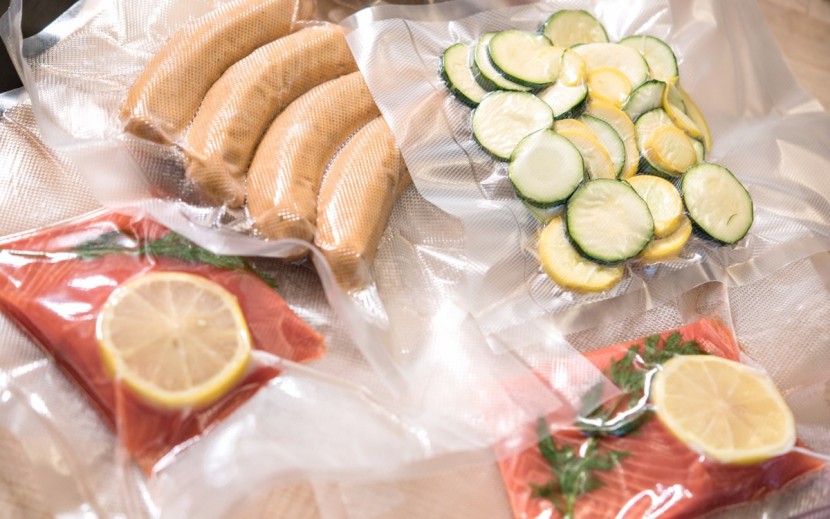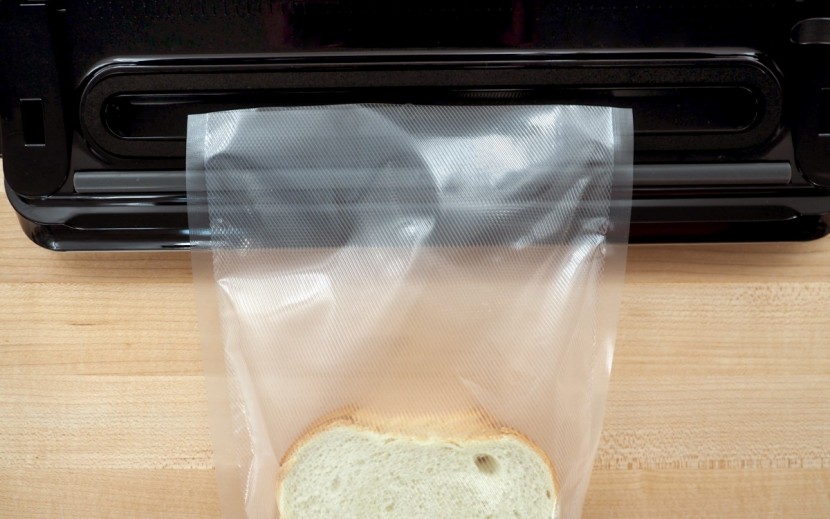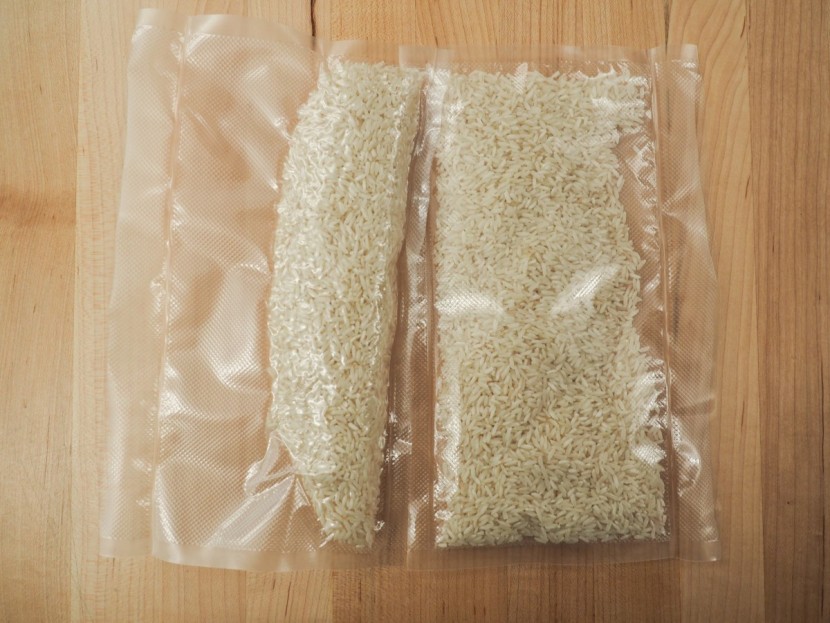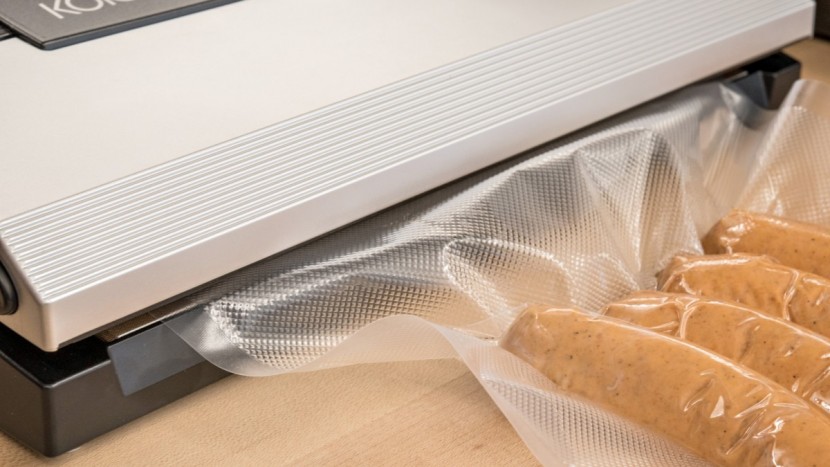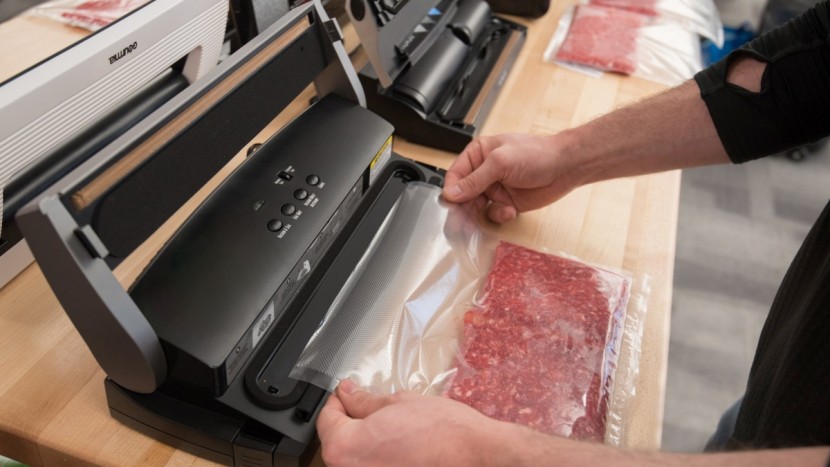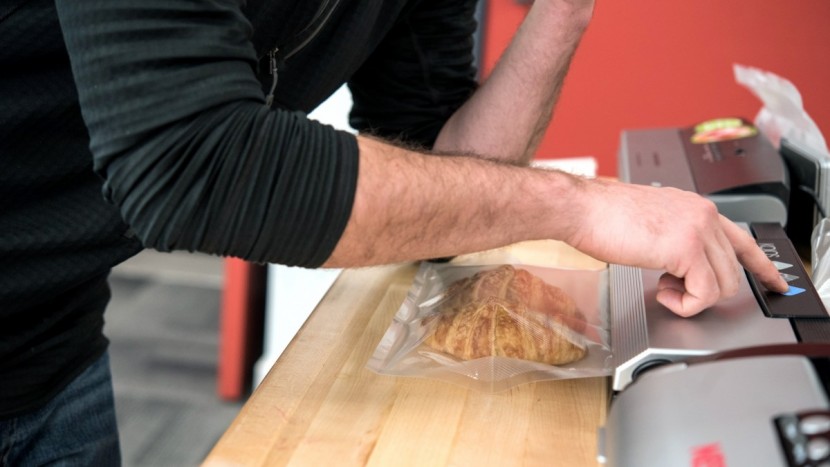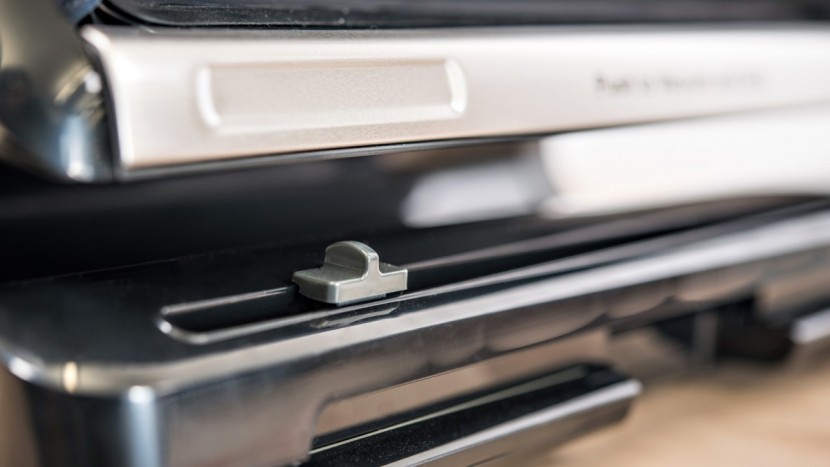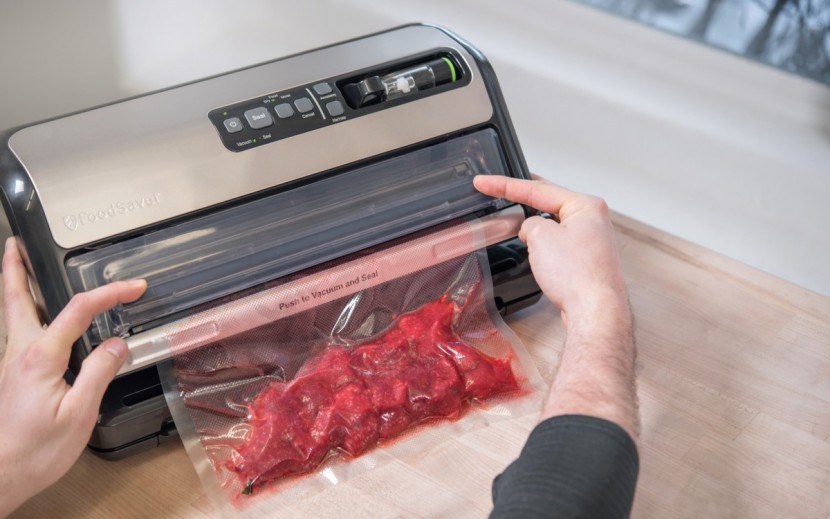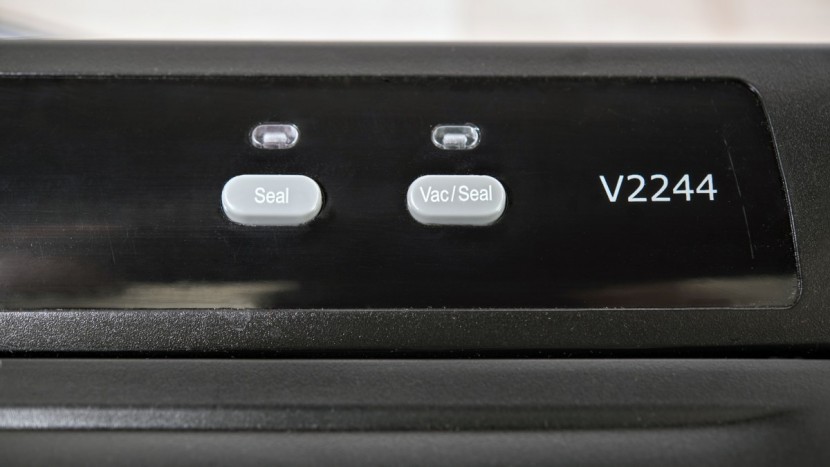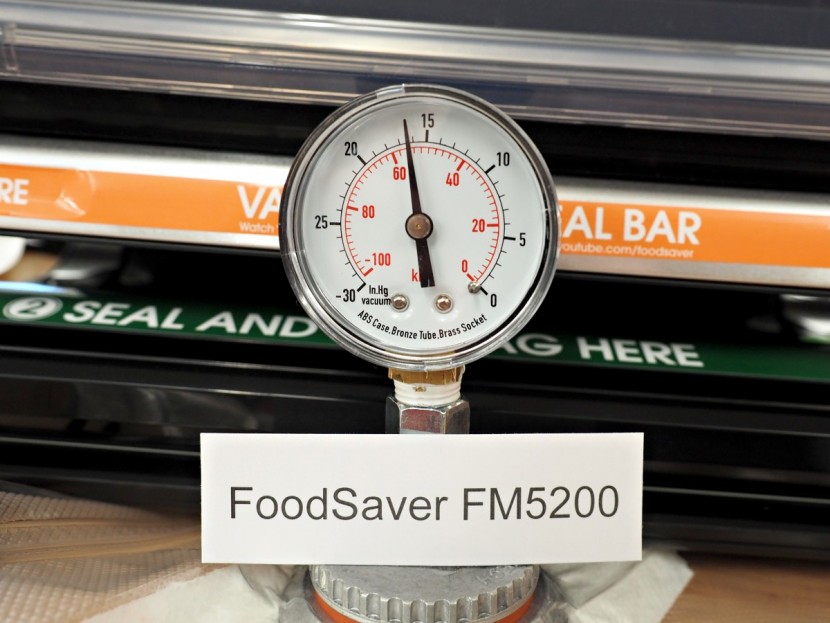If you like to buy in bulk and plan ahead of time, a vacuum sealer is one of the most useful kitchen appliances you can own. To sort out which machines perform the best, we evaluated and compared close to a hundred different models, then picked out the products that we thought were the best. We bought them all at full price and tested them head-to-head to pick out our award winners. We split our testing process into four weighted rating metrics, outlined below.
Sealing Performance
The set of tests that make up this metric accounted for 40% of the final score for each vacuum sealer. To start, we compared how long it took each product to vacuum and seal fully, using four different types of foods to assess performance.
The first food item we tested was four standard slices of store-bought white bread. We sealed the first end of each bag, then stacked four slices of bread along the bottom edge and scored each machine on the amount of time it took to vacuum and seal each bag completely while on its standard settings.
Next, we timed how long it took each vacuum sealer to handle a cup of dried rice. We again awarded points based on the overall time it took to remove the air from each bag and finish the second seal, though we did shake each bag quite a bit beforehand to ensure the rice was packed in as compactly as possible.
We followed that with four pre-cooked sausages, arranged with a slight gap to allow uniform airflow.
Finally, we finished off our set of speed tests for this metric by sealing a pound of ground beef. We formed the meat into an identical square patty for each vacuum sealer.
From our speed test, we moved on to evaluating how many bags we could seal and vacuum consecutively before each machine needed a cooldown period. We scored based on the number of bags each device successfully sealed and vacuumed to 95%, going as fast as possible with identical bags.
For our last two assessments, we compared the strength of each seal by measuring the thickness of the fused plastic it created, followed by an examination of the device's manual function, using our vacuum gauge to confirm whether or not it performs without losing suction strength. Such a feature can be handy when preserving delicate foods, as it offers you a bit more control, which can make all the difference between perfectly sealing berries or crushing them to a pulp.
Convenience
Following the sealing performance of each product, we moved on to evaluating how easy each of these kitchen appliances was to operate. This metric accounted for 30% of the final score for each vacuum sealer.
First, we awarded points to products with built-in storage for a roll of bags and a built-in cutter. We found it much easier and faster to get a cleaner cut with a built-in cutter than without, though using a separate paper cutter isn't much worse. We quickly abandoned scissors.
Next, we looked at the overall size and weight of each appliance and whether there was a removable tray in the sealing area to make cleanup easier. We also scored each sealer on how responsive the interface was and whether a locking mechanism engaged while the device seals. Finally, we awarded some bonus points to products with additional pump attachments for sealing wine bottles or other small containers.
Delicate Foods
For our third metric, we assessed how well each vacuum sealer did when tasked with sealing delicate food items. These tests accounted for 20% of the total score, and we again used soft white bread as our primary test food item, although we also used items such as berries, crackers, and croissants to expand our findings.
We put our four slices of bread in a bag, then manually controlled the vacuum until it sealed the contents to the exact right amount before squishing them, then fully sealed the bag. We scored each appliance on its responsiveness when we hit the seal button, noting if it continued vacuuming and squished the bread or if it let in additional undesired air. We also scored each machine on how easy it was to operate manually, using a combination of the “Seal” and “Cancel” buttons.
Suction Power
For the remaining 10% of each score, we awarded points based on the level of vacuum that each appliance could pull in our test. We used a specialized vacuum gauge in a bag and then scored each one based on the strength of the vacuum that was maintained after sealing.
Conclusion
Now that you have a better understanding of how our team of experts tested and scored vacuum sealers, head on to our comprehensive vacuum sealer review to see which models came out on top. You can also check out our Buying Guide for more information on picking out the perfect vacuum sealer.

